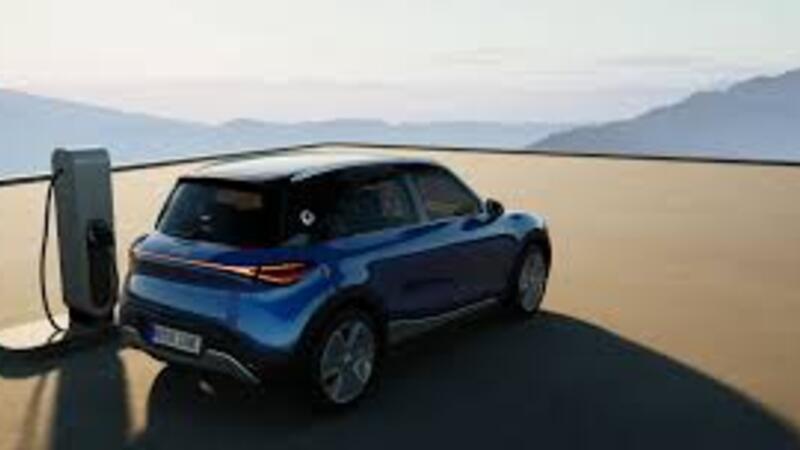Key Takeaways:
- Understanding the environmental impact of traditional combustion engines.
- Exploring the advancements in modern car technology for sustainability.
- Assessing how modern cars contribute to a greener future through eco-friendly features.
- Highlighting the importance of consumer choices in fueling eco-friendly car innovations.
Table of Contents:
- The Shift Toward Eco-Friendly Transportation Choices
- Technological Innovations in Green Car Manufacturing
- Features and Design Elements for Enhanced Eco-Driving Experience
- Electric Vehicles: Accelerating Towards a Cleaner Future
- Comparative Advantages of Hybrids and Electric Cars
- Understanding the Complete Environmental Impact of Green Vehicles
- Incentives and Policies to Encourage Eco-Friendly Vehicle Adoption
- How Consumer Choices Propel Sustainable Transportation Forward
The Shift Toward Eco-Friendly Transportation Choices
Following the environmental awakening, the car industry is changing from its historic dependence on fossil fuels to a future embracing green technologies. Armed with knowledge and ecological awareness today, consumers are increasingly turning away from the gas-guzzling vehicles of the past and looking toward options that promise minimal ecological impact. This growing environmental responsibility is reflected in how car manufacturers like Kia develop sustainable models that cater to the modern-day drivers’ ethos. In densely populated areas, the prospect of finding a new Kia in Santa Ana equipped with the latest eco-friendly features is not just a nod towards cleaner air standards but also representative of a broader commitment to global sustainability goals.
Technological Innovations in Green Car Manufacturing
Automobile manufacturers are rapidly evolving, bringing to the industry a slew of technological advancements that serve the twinned purposes of performance and planet-friendliness. The crux of this innovation lies in developing engines and powertrains that conserve energy while reducing harmful emissions. State-of-the-art features such as advanced battery systems for electric vehicles (EVs) and highly efficient internal combustion engines for hybrids are significant breakthroughs. Beyond just the engines, other complementary technologies contribute to reduced environmental footprints, from using sustainable materials in body construction to software that optimizes fuel consumption. These granular improvements collectively forge a new era in car manufacturing oriented toward conscientious consumption and sustainability.
Features and Design Elements for Enhanced Eco-Driving Experience
The modern car is designed with more than just the driving experience in mind; it’s also crafted to ensure the least possible environmental harm. Everything is optimized for eco-efficiency, from the core propulsion mechanisms to minor aerodynamic tweaks. Sophisticated energy regeneration systems capture and reuse energy typically lost during braking, while advanced telematics systems ensure the vehicle’s operation is as efficient as possible. Even reducing vehicle weight through lighter materials helps significantly reduce fuel consumption and, by extension, carbon emissions.
Electric Vehicles: Accelerating Towards a Cleaner Future
Electric cars serve as a symbol of environmental development in the automobile industry. With zero tailpipe emissions, EVs symbolize the potential to realize a future where transportation no longer contributes to air pollution. Battery technology advancements have resulted in longer ranges, shorter charging times, and improved accessibility, making EVs a more viable option for a broader spectrum of people. The push towards electrification is gaining momentum among innovators and early adopters, as well as at the policy level, where initiatives in numerous countries facilitate a more robust EV infrastructure.
Comparative Advantages of Hybrids and Electric Cars
As we navigate eco-friendly driving options, two significant contenders emerge hybrid and electric cars. Each comes with its set of environmental benefits and trade-offs. Hybrids offer a middle ground, using electricity to reduce fuel consumption while providing the security of a gas engine for longer drives. On the other hand, electric cars stake the claim of zero-emission travel, appealing to those looking to cut their carbon footprint unequivocally. In evaluating which is the greener choice, the individual needs of consumers, the source of electric power, and the availability of charging infrastructure all play pivotal roles.
Understanding the Complete Environmental Impact of Green Vehicles
When considering the green credentials of a vehicle, it’s essential to adopt a holistic perspective that encompasses the vehicle’s complete lifecycle. The production of eco-friendly cars, while often more energy-intensive due to the manufacturing of components like batteries, can be offset over the vehicle’s operating life through reduced emissions. But it doesn’t stop there – responsible end-of-life disposal and recycling processes are also critical components in ensuring that the vehicle’s environmental footprint is minimal throughout its journey from the assembly line to its final retirement.
Incentives and Policies to Encourage Eco-Friendly Vehicle Adoption
The global move to green vehicles isn’t solely organic; it’s also incentivized by governments and policymakers worldwide. Understanding that economic factors can influence consumer behavior, various financial incentives such as tax breaks, subsidies, and rebates have been instituted to make environmentally friendly cars a more attractive option. Beyond these direct economic incentives, governments are also investing in support infrastructure for EVs, such as widespread charging stations, which are essential in reducing range anxiety among potential EV owners.
How Consumer Choices Propel Sustainable Transportation Forward
In the modern market, consumers wield substantial power in directing the future of the automotive industry. Demand for greener vehicles signals to manufacturers that sustainability is not a fad but a core concern of their customer base. Each environmentally conscientious decision adds to a collective action that may expedite the transition to a more sustainable transportation paradigm. The relationships between consumer choice, technological innovation, and environmental stewardship have never been more interdependent in driving the change we wish to see.
